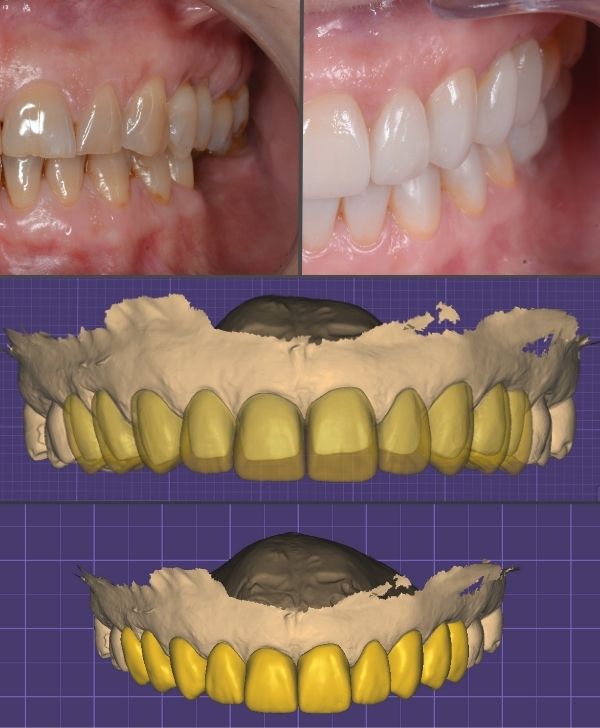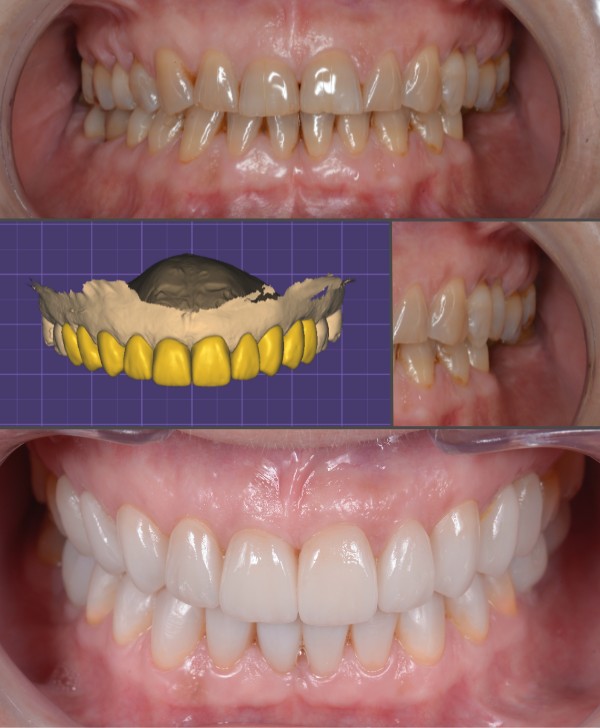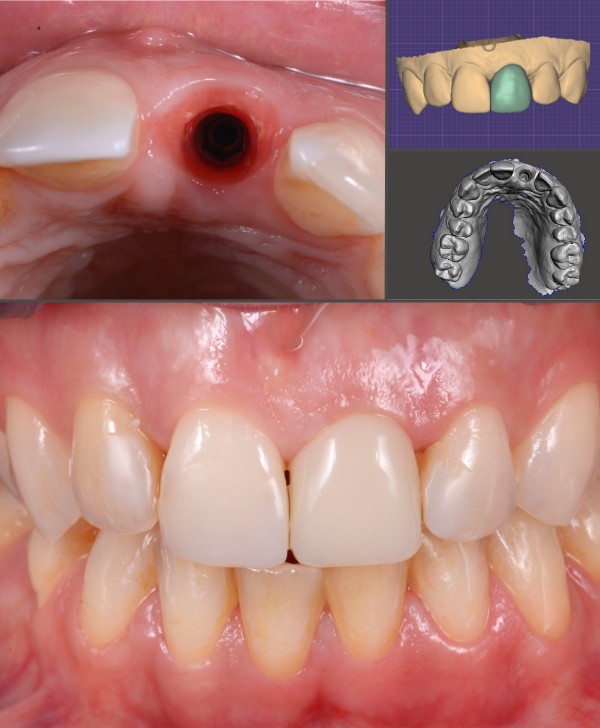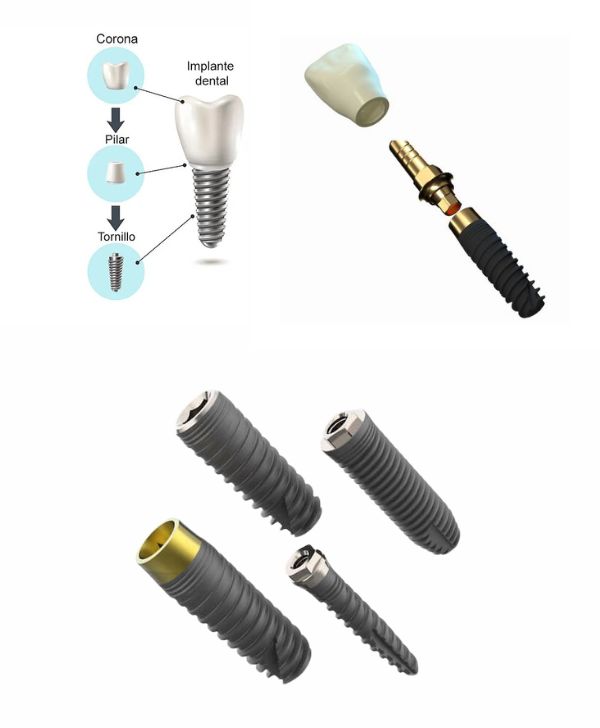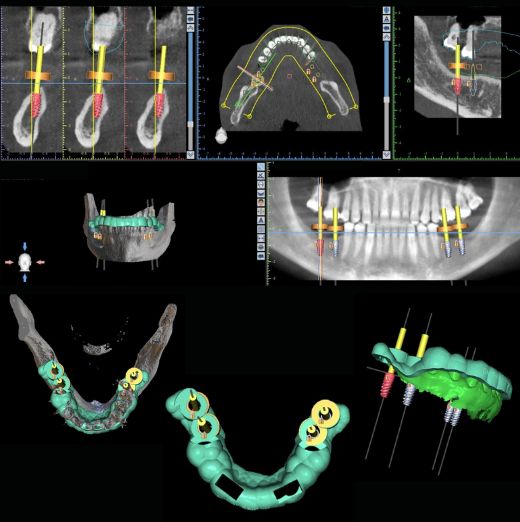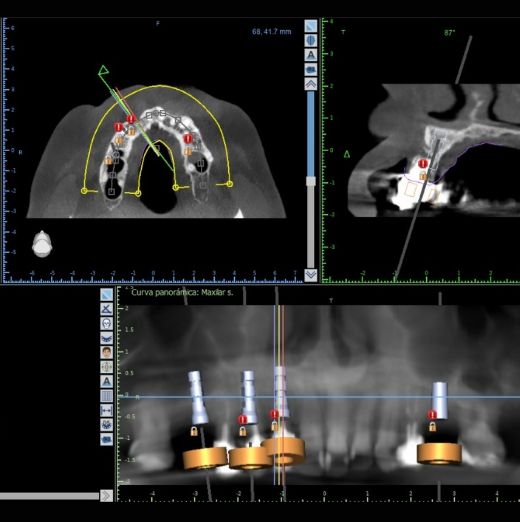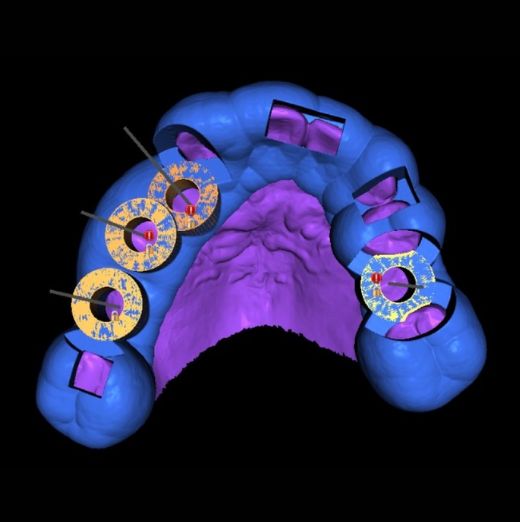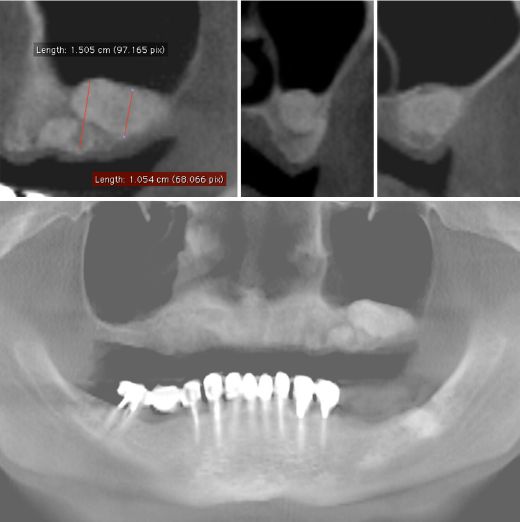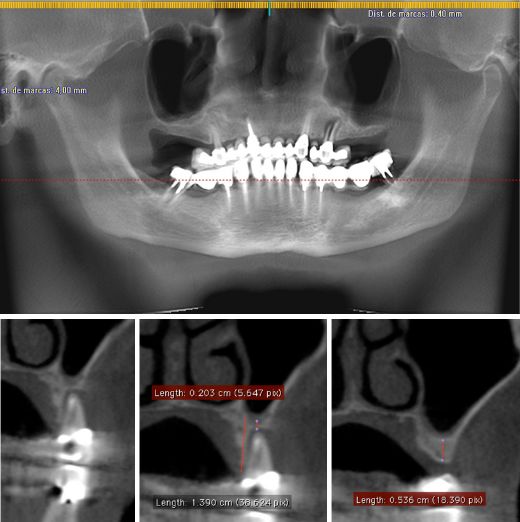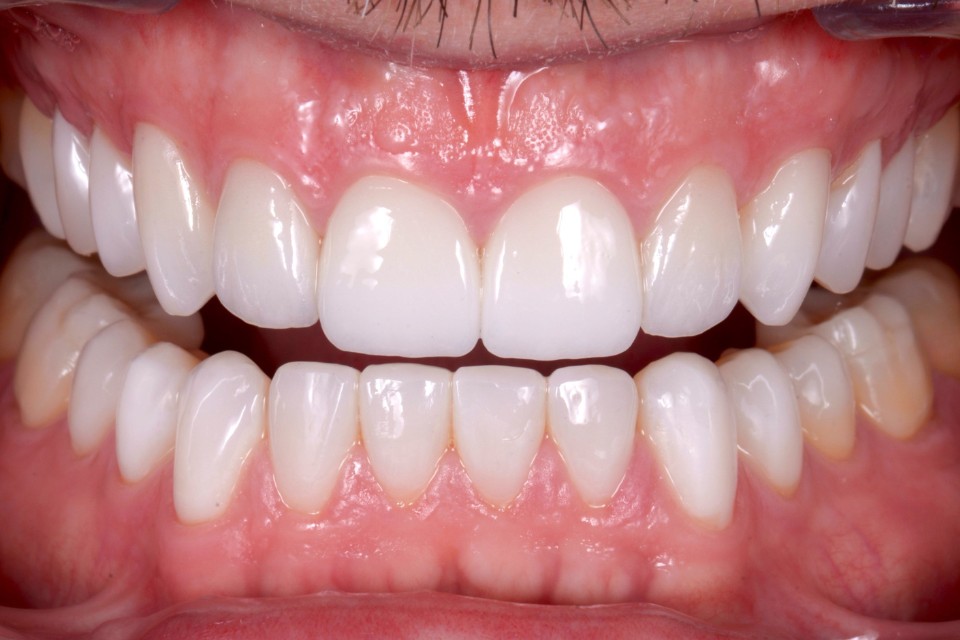
At Clínicas Den, we specialize in dental implants in Barcelona. We offer advanced, personalized solutions to restore the function of your bite and restore the harmony and aesthetics of your smile.
How can a dental implant transform your smile?
The dental implants we place at our Barcelona clinic are much more than an aesthetic solution for your smile; they also restore stability and functionality to your bite.
By integrating with the jawbone using biocompatible materials, this titanium implant safely and permanently replaces the root of the missing tooth. On this firm foundation, we install crowns, bridges, or prostheses that perfectly mimic the function and appearance of natural teeth.
In addition, this advanced treatment prevents bone loss associated with missing teeth and helps maintain better facial harmony in the long term.
We are leaders in dental implants in Barcelona
Our team of specialists will assist you through every stage of your dental implant treatment in Barcelona, from the initial diagnosis to the final placement of the crown or prosthesis on the implant, ensuring functional, aesthetic, and long-lasting results.
We are committed to dental excellence and fully personalized care.
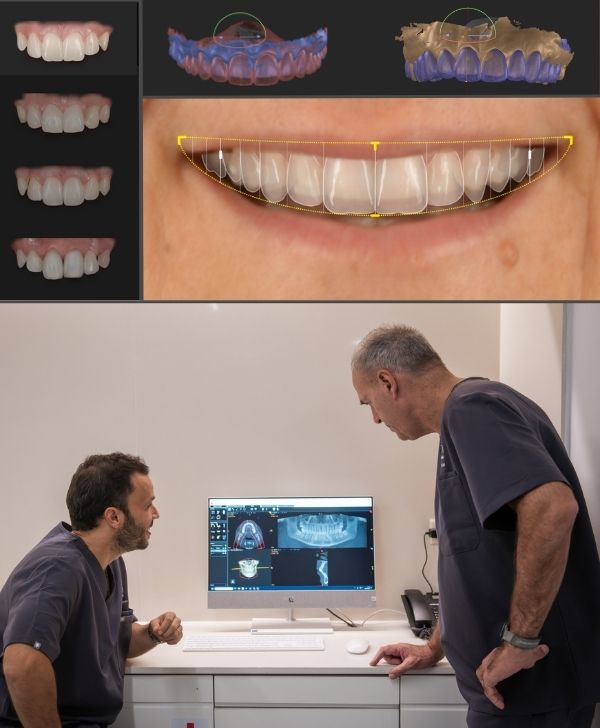
Digital smile design
We combine clinical expertise with cutting-edge technology to offer dental implants in Barcelona with more functional and aesthetic results. Thanks to our fully digital workflow, we plan each case with millimeter precision.
We use CBCT X-rays, a 3D intraoral scanner, and digital photographs to preview implant placement, along with a CAD/CAM system for the design and manufacturing of the final implants.
Under the supervision of the team of dentists and surgeons at Clínicas Den, led by Dr. Pablo Rial and Dr. Ramón Serrat, this detailed digital planning improves implant integration and ensures more personalized and lasting results.
Guided dental implant surgery in Barcelona
We restore your smile with our advanced dental implant technology, the best definitive solution for teeth lost due to cavities, trauma, or periodontal disease.
The use of biocompatible materials, such as grade 5 titanium, ensures optimal integration with the jawbone and provides the perfect foundation for a dental prosthesis or crown.
Our comprehensive approach also considers the health of the soft and bone tissue, as well as the aesthetics of the permanent crown or prosthesis.
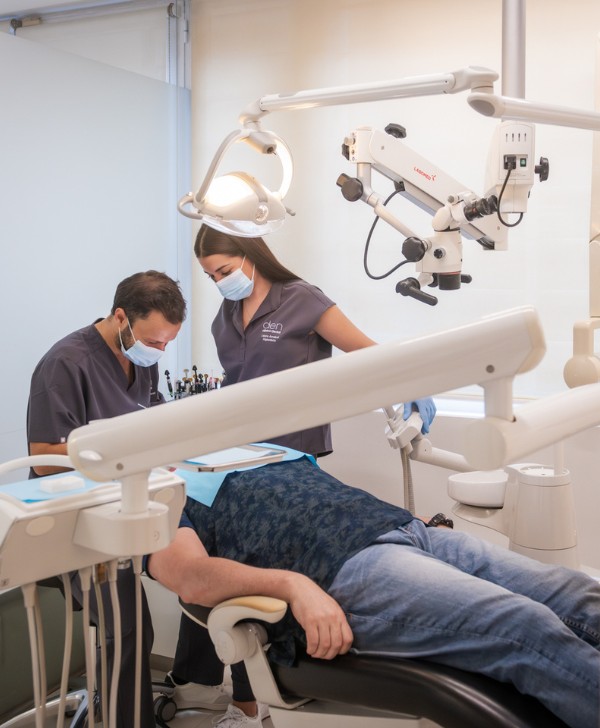
Bone regeneration for implants
Tooth loss leads to the resorption of the surrounding bone, a physiological phenomenon that can be exacerbated if the loss is due to infection or trauma.
Successful placement of a dental implant requires the patient to have an adequate quantity and quality of bone. If bone volume is insufficient to ensure implant stability, bone regeneration procedures are essential.
This surgical procedure, performed under local anesthesia, seeks to increase bone volume in both width and height using horizontal and vertical bone regeneration techniques.
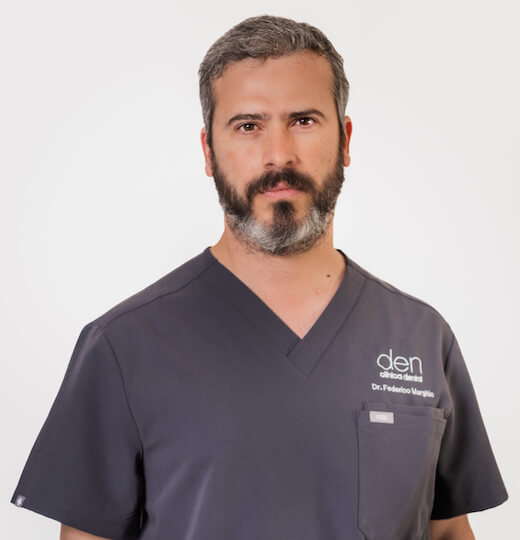
Dental implants and soft tissue and bone regeneration
Dr. Federico Margitic is a leading figure in periodontal surgery and dental implantology in Barcelona. His career combines a solid background in dentistry with extensive clinical experience in periodontal and mucogingival surgery.
Committed to academic excellence, he also trains future specialists as a professor in the Master’s Program in Periodontics at the University of Barcelona and as co-director of the Postgraduate Program in Comprehensive Implantology at the Catalan Society of Odontostomatology.
His clinical and teaching acumen adds high added value to every treatment he performs alongside the team of professionals at Clínicas Den.

Elevation of the maxillary sinus
The maxillary sinuses are on top of the upper teeth and are hollow cavities lined by a membrane on the inside. Some roots of the natural upper teeth extend into the maxillary sinuses.
When these upper molars and premolars are lost, there is often only a thin wall of bone separating the maxillary sinus and the mouth. In this case, we cannot place dental implants in that area, and this is when we resort to the sinus lift technique.
This sinus lift technique makes it possible for many patients to have dental implants, when years ago there was no other option but to use removable prostheses.
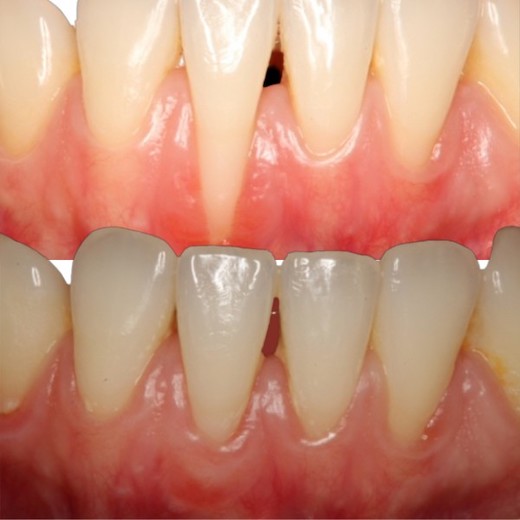
Soft tissue grafting on implants
In addition to optimal bone quantity and quality, the condition of the gums is key to the success of a dental implant. If there isn’t enough gum tissue to properly seal the implant and prevent infection, we perform a gum graft, usually from the patient’s own palate.
This soft tissue graft is an outpatient procedure, known as periodontal plastic surgery, performed in our Barcelona clinic under local anesthesia and with maximum precision.
Frequently asked questions about dental implants
What is digital smile design?
Digital smile design is an innovative technique in dentistry that uses technology to project a patient’s ideal smile.
In dental implantology, this methodology helps both dentists and patients predict the final result of treatment before starting it.
Through digital representations and 3D simulations, it is possible to anticipate how the smile will look after procedures such as implants, prosthetics, crowns, bridges, or veneers, improving patient communication and satisfaction.
When are dental implants necessary?
Tooth Loss Affecting Chewing
Missing teeth due to trauma, fractures, or cavities can compromise your ability to chew properly, affecting your nutrition and overall well-being.
Dental Infections with Bone Loss
When an infection or periodontal disease causes bone or tissue loss, dental implants can restore the affected area, preventing further deterioration.
Tooth Mobility Due to Periodontal Disease
Advanced periodontitis weakens the roots and causes teeth to shift. In these cases, implants offer a stable and lasting solution.
Adjacent Teeth at Risk After Tooth Loss
When a tooth is lost, the surrounding teeth can shift or wear down due to lack of support. An implant helps maintain dental alignment and protect the jawbone structure.
Difficulty Speaking Properly
Missing teeth can affect the clarity of speech. With dental implants, it is possible to restore natural and confident diction.
Loss of facial volume or gum recession
Missing teeth can lead to bone resorption and alter the appearance of the face. An implant helps maintain bone support and preserve facial harmony.
If you find yourself in any of these situations, at Clínicas Den we can help you with an implant treatment in Barcelona tailored to your needs.
Will I notice I'm wearing it?
You will not feel a noticeable difference from your natural teeth. The sensation of dental implants is the same as real teeth.
Is the postoperative period painful?
No, it is not painful. You will notice some discomfort that you can eliminate with painkillers. To give you an idea, the healing of this type of surgery is more comfortable than that of the extraction of a tooth.
This operation does not leave open wounds, nor does it leave infected or inflamed areas in the mouth. In fact, there are many patients who do not feel any discomfort when the anesthesia wears off.
What care does a dental implant require?
Even though it’s an artificial tooth, you need to care for it just as if it were your own. Maintain proper hygiene, use toothpaste, and floss appropriately to prevent the buildup of plaque and tartar.
It’s true that you’re not at risk of cavities, but poor hygiene can cause gum inflammation, leading to conditions such as peri-implantitis.
What is the immediate loading technique?
It’s an advanced technique that allows a fixed temporary dental prosthesis to be placed on the implant immediately after surgery, without having to wait weeks or months. Thanks to a prior 3D scan, we design the prosthesis in advance so it’s ready at the same time as the procedure.
This approach not only improves aesthetics from day one, but also promotes proper gum formation around the implant, facilitating a more precise and natural fit when the permanent prosthesis is placed.
Can anyone have dental implants?
In general, there are usually no contraindications for people with certain pathologies. However, depending on the doctor’s diagnosis, it is always a good idea to study each particular case to determine if the implant can be placed.
For example, people who smoke have a higher risk of suffering complications. In the case of diabetic people, it is not good to do any surgery until they have controlled their sugar levels.
Some diseases, such as osteoporosis, and the intake of some types of medication, such as anticoagulants, require a more detailed study by our doctors when making the diagnosis.
Is an implant better than a prosthesis?
A priori, the dental implant is a more beneficial treatment for a patient in the long term. If we do not replace the root when a tooth falls out, the alveolar bone is reabsorbed over time.
It also has a series of added advantages that have made it one of the most popular treatments for the reconstruction of missing teeth. An implant is fixed, unlike dental prostheses which, being movable, can present esthetic and mobility problems in the long term.
Testimonials from our patients
Tell us how we can help you
+34 932 18 80 80
Request information about Dental implants in Barcelona
By filling the next contact form, you can communicate with the professional team at our clinic and ask for more information about our treatments as well as book an appointment with our specialists.


